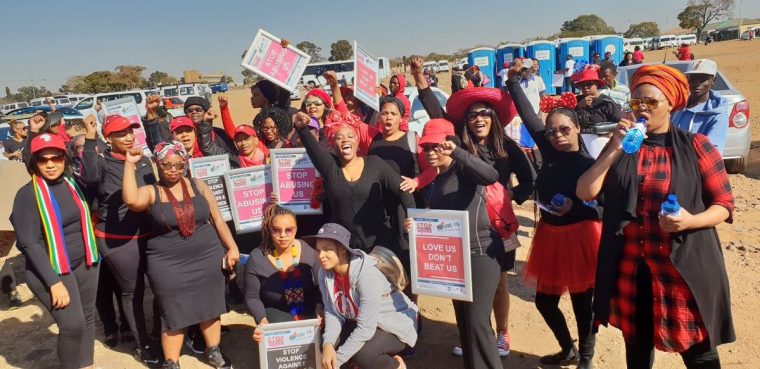
Stories are powerful tools to remembering the history of oppression as they illuminate emotions that convey larger themes of structural inequities. In South Africa, storytelling is cultural tradition that allows the rich past of South Africa to be passed down through generations. In a country, whose history is colored by the violent systems put in place by apartheid and colonialism, stories are a necessary tool to resistance as their emotional power inspires individuals to work to envision a more just future. However, the lasting legacy of apartheid and colonialism is working to erase certain stories by censoring them.
In February 2018, the film, Inxeba, was banned by the South Africa’s film appeal tribunal. The film tells the story of the relationship between two men who meet during a traditional initiation rite in the mountains of the Eastern Cape. The tribunal critiqued the film’s scenes of gay sex as having no artistic value, and that they could “increase tensions in society”. Protestors claim that the ban is homophobic, unconstitutional and a way to perpetuate toxic masculinity in South African culture. While it is imperative to reflect on what the censorship of Inxebameans for queer men, it is also essential to reflect on what it means for South African women. This censorship supports the toxic masculinity that not only perpetuates violence against queer men but also against women. About one in five women in South Africahave experienced physical violence, and 40% of South African women have experience some form of sexual violence. What does it mean for the safety of oppressed people in South Africa if a story about love and tenderness that combats toxic masculinity is erased?
These stories are not only erased through film censorship but also through global social media platforms. In December 2017, about 200 young girls marched through the streets of Johannesburg to demand that Google and Facebook respect African culture. The platforms continuously remove cultural images and videos that feature bare-breasted women. Lazi Dlamini, the organizer of the march, explained, “These are Africans celebrating their culture. Google and Facebook must respect us because they are operating in an African land”. Social media is an important platform for stories to be heard and shared globally. The censorship of African bodies by western social media platforms demonstrates how pervasive colonialism is, as oppressive structures adapt to a digital era.
The active erasure of the stories of South African people is another way the South African education system remains colonized. Alex Mashilo of the South African Communist Party says that when schools teach about communism they do not teach about the role the South African Communist Party played in liberating South Africa. Instead, schools teach the narrative of the communism of Joseph Stalin. This speaks to how the colonized educational system in South Africa wants to lift up western narratives and silence alternative stories of liberation in order to keep individuals oppressed within a capitalistic patriarchal society.
It is imperative that stories are working to tell a complete narrative of South Africa. This means that heroic stories about South African men fighting in the liberation struggle are told just as often as the stories of South African women enduring sexual violence at the hands of comrades. If South African education systems are not teaching certain narratives, students cannot remember their past in order to envision a more inclusive future. If the stories about liberation that are being taught are only about trauma, pain, and sadness, then the narrative is incomplete. While the collective pain and trauma of Black people in South Africa is real, so are the moments of profound joy, love, and tenderness. These stories exist and create hope and inspiration for a future to strive toward. These stories are also necessary to demonstrate that trauma and pain do not have to always define the experiences of Black people. However, sitting with the emotions of these stories and how they relate to the present is not enough.As Sisonke Msimang teaches us, “If a story moves you, act on it”. Stories need to be vehicles that lead to action. As we engage in the emotionally laborious work done by storytellers, we must respond by creating action that aims to stimulate a more liberating future.
(Photo Credit: ThisIsAfrica)
